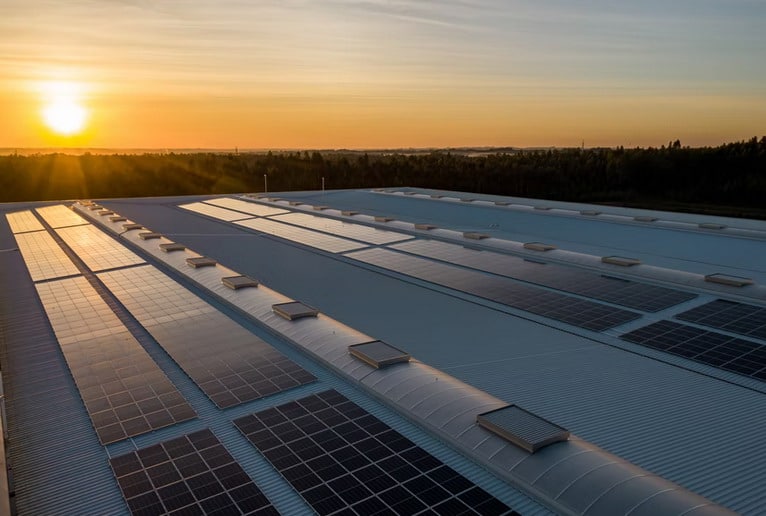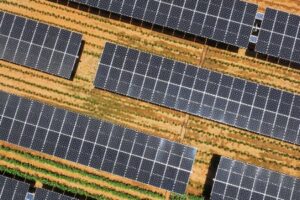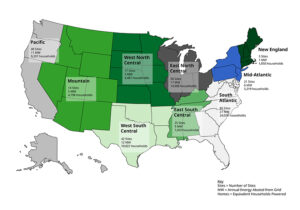Are Solar Panels the Cornerstone of the Energy Transition in the UK?

Every year, households across the UK wonder how they can be more environmentally conscious at home, especially with their energy use. And it’s no doubt that as more people turn toward green energy the competitiveness and accessibility to the decarbonising energy market increases.
With the number of cloudy and rainy days in the UK, generating electricity using solar panels may not seem like a natural alternative for many people. However, solar panels can still function successfully with very little direct sunshine. In fact, since 2019, solar energy has exceeded wind as the green energy of choice. Every year there are more than 1 million installations of solar panels in the UK.
What’s driving the energy transition?
The EU Commission has recently announced they want to make solar the largest electricity energy source. But this announcement comes with double urgency to transform Europe’s energy system. On one hand, it’s the climate crisis that is on many politicians’ and homeowners’ minds, but it’s actually the economic agenda that’s pushing the energy transition forward.
The EU wants to transition away from dependence on Russian fossil fuels. This energy import costs £100 million a day. And solar energy provides a more sustainable and economical alternative. The technology innovations over the past decade have decreased the cost of solar energy by over 80%. And with future technological advancements, we can see another 15-25% cost decrease over the next decade. As solar energy becomes more economically accessible, it is expected to see the reliance on gas and oil decrease.
Why should you be going solar?
Ultimately, solar energy provides a way for society to reduce our carbon footprint while still meeting our energy demands. Because solar energy is a low carbon and renewable energy, a typical household could save approximately 1 ton of carbon annually.
But if the environment isn’t enough reason to go solar, solar panels can help you reduce your electricity bills. Sunlight is free, so once you pay off your initial solar panel installation cost, you’re not paying anything for the solar energy you use.
According to the Energy Saving Trust, households are expected to break even on the costs of installing solar panels within 13 to 24 years. The amount of time also depends on the current energy prices, how much electricity you use, when you use electricity, and what you’re paid under the Smart Export Guarantee.
The Smart Export Guarantee is just one of the solar panel grants from the UK government to incentivise homeowners to transition to greener energy. The Smart Export Guarantee supports small-scale renewable energy generators for the electricity they export to the energy grid.
Another financial incentive available to UK homeowners is the Energy Company Obligation 4 (ECO4) which started in April 2022. Under ECO4 you can potentially receive grants for solar panels. Prioritization of funding is given to vulnerable and low-income households, assisting people in fuel poverty who might otherwise be unable to acquire solar panels.
Will we ever be fully solar-powered?
For the foreseeable future, the answer is most likely no. But we’re moving in the right direction, albeit slowly. Solar panels help fight global warming by generating electricity as an alternative to burning polluting greenhouse gases from fossil fuels.
Regardless of the negative impacts of burning fossil fuels on the global climate, alternative energy sources will become increasingly significant in the future since fossil fuels may be depleted by the early twenty-second century if consumption continues at its current rate. This means that humanity will have to rely largely on renewable energy sources sooner or later.
For solar panels to become a more reliable energy source for society, we’re ultimately needing more technological advancements that can help us gather and store solar energy more efficiently.
During the day, houses can generate electricity (even on cloudy days). However, if you use more electricity around your house than your panels generate, or if your panels don’t generate any electricity at all during the night, you’ll have to supplement by importing electricity from the grid.
What we can do in the meantime though is combine solar panels with other renewable energy systems. For instance, you can combine solar panels in the UK with other renewable technologies such as solar-powered hot water systems or heat pumps. These technologies are compatible with each other as solar panels can help power a heat pump.



